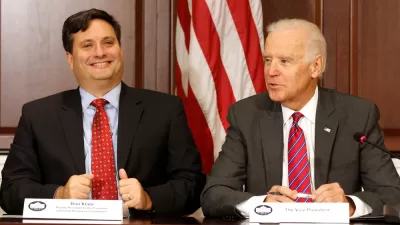Any leader is only as good as their team, and supporting your team's work while earning their trust and respect is the number one responsibility of a good leader. Here are six additional thoughts on what makes a good municipal leader.
In late September, the Council for Canadian Urbanism (or CanU), which I’ve been the President of since our official creation in 2009, will be holding our 5th annual Summit of leading Canadian multi-disciplinary urbanists, #CanU5, in Halifax, Nova Scotia. This year's theme is city-building leadership, particularly within our city halls, and in the urbanism professions and practice in general. To support the leadership dialogue, one of our keynotes will be a panel discussion with the Chief Planners for Montreal, Toronto and Calgary.
It's a topic of particular interest to me, as a former municipal leader, and now as an advisor to cities on city-making as well as leadership, culture change and capacity-building.
I’ve had the benefit of some truly excellent leadership mentors in city halls, and I’ve also had a boss or two that have been powerful illustrations of what not to do. The good ones instilled in me the wiring that municipal leadership is about inspiring and empowering excellence and creativity, earning and keeping trust, nurturing talent, recognizing and rewarding both successes and “competent failures” (as my friend Charles Landry calls them), and cultivating a culture of intelligent risk-taking. If you truly care about the people on your team - their growth, success, satisfaction and pride - that's more than half the battle.
As coincidence would have it, a few months back during some Sunday filing, I happened across an old file of handwritten notes that I had long forgotten about. They were from a series of candid lunch chats I’d had in the year 2000, after accepting my first municipal management position with the City of Calgary. I was nervous about making the transition to the public sector, and was lucky enough to have the benefit of good relationships with a handful of Chief Planners from a variety of Ontario municipalities. They shared with me their advice on municipal leadership as I made the jump to my first city hall.
Reading the notes again now, after 12 years of municipal leadership, was eye-opening, and in a way, validating. I hadn't specifically remembered much of these conversations, except for the most important advice that every chief planner gave me, that has stayed with me ever since – “always support your people.” Any leader is only as good as their team, and supporting your team's work while earning their trust and respect is the number one responsibility of a good leader.
Aside from this key message, some additional thoughts jumped off of the handwritten pages. I initially shared them through a series of six 140-character tweets that generated some interesting twitter discussion a few months back, and several urbanists encouraged me at the time to assemble them into an article, which you are now reading. So here they are, in the same 140 character-max form in which I originally tweeted them:
- Leaders are there to support their people, their staff. Not the other way around. It's about your team's success. Put your people first.
- Leaders deal with 50+ issues a day, roughly 3.5 minutes per issue. Teach & empower your people to make decisions & build their capacity.
- Don't micromanage. Strategically lead, & make sure your people know what you need to be informed on, & what they can handle themselves.
- Create a culture & environment that motivates & inspires, where people are safe making mistakes. Listen, respect, never push them down.
- Be clear about your expectations, be consistent, & never blindside your people. Don't make them second-guess or feel nervous about you.
- Great leaders aren't afraid to surround themselves with people who are smarter than they are, & especially that fill their blind spots.
Simple, right? In fact, these 6 can be surprisingly challenging to put into practice. There was much more in the text and sub-text of the handwritten notes, and I’ve since read and lived much more on the subject of creating a culture of success and innovation, but it occurs to me that we often over-complicate things when it comes to good leadership. Twelve years later, I realize these 6 pieces of advice have served me well, and confirmed my own feelings and instincts regarding leadership.
I hope to see you at our #CanU5 Summit in Halifax, for much more dialogue on how we all can provide better and stronger leadership in our city halls, our practices, and in our building of Canadian cities, towns and communities.

Maui's Vacation Rental Debate Turns Ugly
Verbal attacks, misinformation campaigns and fistfights plague a high-stakes debate to convert thousands of vacation rentals into long-term housing.

Planetizen Federal Action Tracker
A weekly monitor of how Trump’s orders and actions are impacting planners and planning in America.

San Francisco Suspends Traffic Calming Amidst Record Deaths
Citing “a challenging fiscal landscape,” the city will cease the program on the heels of 42 traffic deaths, including 24 pedestrians.

Defunct Pittsburgh Power Plant to Become Residential Tower
A decommissioned steam heat plant will be redeveloped into almost 100 affordable housing units.

Trump Prompts Restructuring of Transportation Research Board in “Unprecedented Overreach”
The TRB has eliminated more than half of its committees including those focused on climate, equity, and cities.

Amtrak Rolls Out New Orleans to Alabama “Mardi Gras” Train
The new service will operate morning and evening departures between Mobile and New Orleans.
Urban Design for Planners 1: Software Tools
This six-course series explores essential urban design concepts using open source software and equips planners with the tools they need to participate fully in the urban design process.
Planning for Universal Design
Learn the tools for implementing Universal Design in planning regulations.
Heyer Gruel & Associates PA
JM Goldson LLC
Custer County Colorado
City of Camden Redevelopment Agency
City of Astoria
Transportation Research & Education Center (TREC) at Portland State University
Jefferson Parish Government
Camden Redevelopment Agency
City of Claremont






























